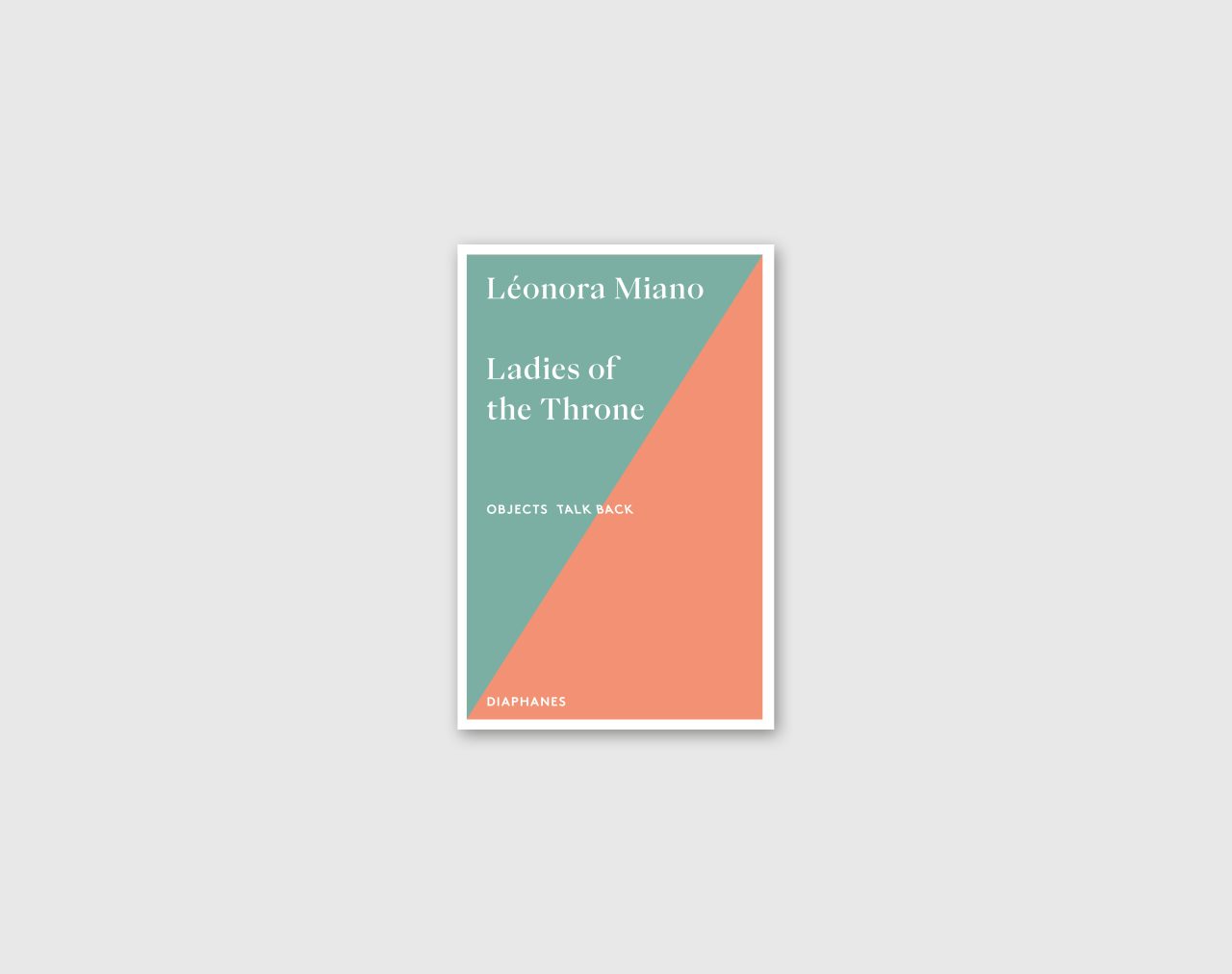Léonora Miano: Ladies of the Throne
{{ time.start_TS | TS2dateFormat('MMM') }}
{{ time.start_TS | TS2dateFormat('YYYY') }}
| € 8.- |
| Now available in the Humboldt Forum shop and soon to be ordered online |
| English, German |
| Part of: Objects talk back |
“Most of the time, it is the power of men that we remember.” These words open Léonora Miano’s narrative around Mandu Yenu, a throne from the ancient Kingdom of Bamum (present day Cameroon). The Germans long claimed the object was a ‘gift’ from King Njoya to Kaiser Wilhelm II. Miano reads “between the lines of beads and cowrie shells” to show the complexity of colonial and gender relations. She reveals that Mandu and Yenu were royal wives in the Kingdom of Bamum. The very name of the object suggests – it is the power of women we should remember.
Published by Stiftung Humboldt Forum im Berliner Schloss
Diaphanes, Paperback, 48 pages, 11 x 17 cm, ISBN 978-3-0358-0755-4
The original text in French is available for download here:
Ngwuo ‘Mandu Yenu’
Sultan Njoya of Bamum ‘gifted’ this elaborate throne to Kaiser Wilhelm II during the German colonial period in Cameroon. However, in the context of such highly asymmetrical power dynamics, the term ‘gift’ remains contentious. The throne is a significant cultural artifact and at the same time a symbol of colonial injustice.
Various collaborative research and museum projects are currently addressing the often violent histories of how cultural belongings from Cameroon were acquired. These initiatives foster dialogue and new forms of cooperation with partners and communities in Cameroon. A Cameroonian commission is currently working with eleven German museums to facilitate the restitution of cultural objects that were unlawfully removed during the German colonial era.
Ngwuo ‘Mandu Yenu’
Throne chair made of wood, glass, textile, lime (cowrie shell)
Cameroon, Bamum, Cameroonian Grasslands
19th century
174 x 126 x 155 cm
Ethnologisches Museum – Staatliche Museen zu Berlin
Léonora Miano was born in Cameroon. She lives and writes between the continents: in her country of origin, France, and in Togo. Her novels, plays and essays have been awarded numerous prizes. Most recently, her acclaimed work Sisterhood was published in German – a passionate plea for a new global solidarity among women and a fascinating journey to the origins of a different feminism.
